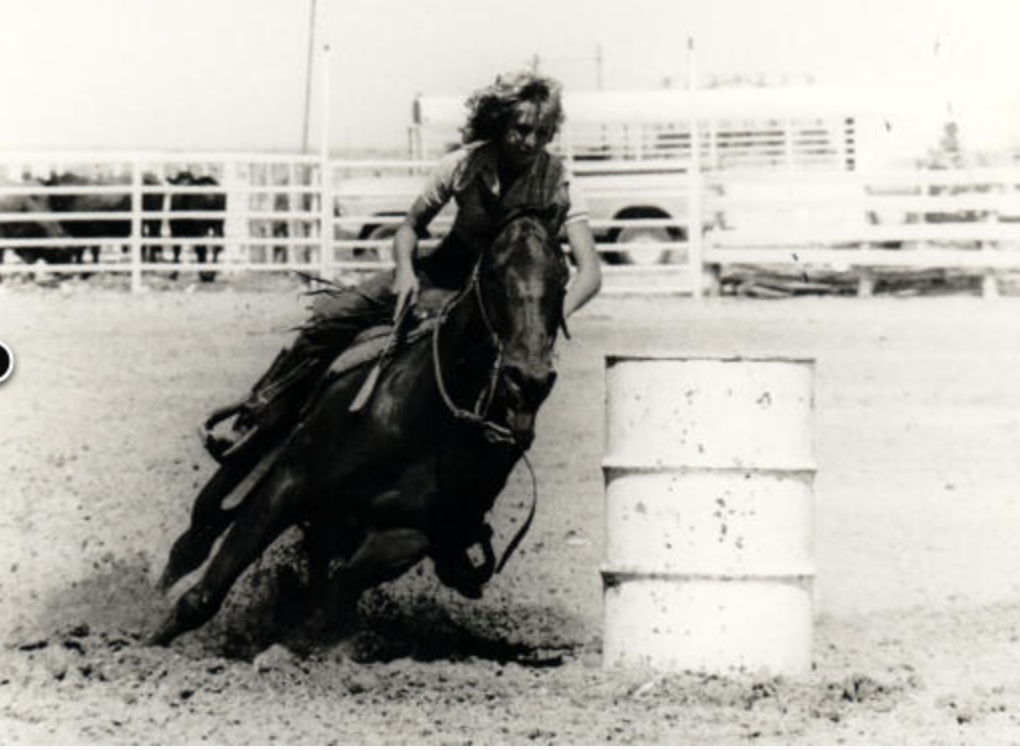As part of #WomenInRodeo month, BarrelRacing.com content director Bonnie Wheatley had a chance to visit with Charmayne James, one of most iconic figures in women’s sports and rodeo for The Money Barrel podcast.
| LISTEN: Women In Rodeo Month with Charmayne James
The 11-time Women’s Professional Rodeo Association World Champion Charmayne James talks about the genesis of her professional career spanning more than two decades, 19 National Finals Rodeo qualifications and countless major rodeo wins. Charmayne’s passion for horses and helping people achieve their goals in barrel racing inspired the schools she now travels the country teaching where horse care, horsemanship, and winning mentality are just a few of the cornerstone principles.
Read a few of our favorite outtakes from The Money Barrel podcast interview below.
Wheatley: During your career you’ve probably seen so many changes that people today who run barrels at rodeos might not realize. Talk a bit about how things changed over the years since the start of your career.
Charmayne James
“In 1983 I went to Dodge City, Kansas, and Raton, New Mexico, to try to fill my permit because I’d been doing really well at the amateur rodeos. I went to Raton first and Scamper ducked off in front of the chutes, he got scared of the bulls, and then I was set to go to Greeley, Colorado, but I had a wreck on my 4-wheeler. My sister was behind me on the 4-wheeler and when I flipped it, she went over my head and cut my head open with her spur, so I never made it to Greeley to fill my permit that year. I ended up going to Dodge City and won Dodge City, so that filled my permit.”
“In 1984, I started out going to Kansas City, Denver, Scottsdale, Phoenix, El Paso. I was 13 when I started out my first year in 1984. So, at the time the barrel racers didn’t have equal money that the other events did. The team ropers didn’t have equal money either. I would say that the money compared to that very first year, 1984 to what it is now, it was a lot less then. We had that hurdle that we had to get over to get the barrel racers equal money. A lot of people want to talk about that being a woman versus a man thing, and I don’t really like where that has gone, man versus woman. I think it was just a matter of business decisions, and if the barrel racers were just going to accept running for less money, then why not give them less money?
“Nobody jumped in there, it was always an easy out, because it was like, ‘Oh, well they’re the WPRA, they’re not the PRCA, we don’t even have to have barrel racing.’ I think from a negotiation standpoint that was the main point, and of course everybody was scared to do anything about it because there would be no more barrel racing, no more WPRA at the NFR and at all these rodeos.”
Equal Money Conversations
“There were a lot of conversations all the time about how the barrel racers weren’t getting equal money and you know, everybody was just kind of too afraid to confront it. There was a gorilla in the room, and nobody wanted to take it on. I feel like I was in a position just because I was high profile for the rodeo world. I had the following from the media also—it was USA Today, ESPN and I was featured on Good Morning America and ABC News. I had gained national press coverage, so I just feel like I had kind of an opportunity to reach out. I contacted an attorney by the name of Robert Rosenthal in Los Angeles. He worked on a lot of women’s issues, and I didn’t want to go down the road of this man versus women thing, I know I keep saying that, but it’s because I just don’t feel like that’s what it was. I think the thing with Robert was he knew people in the Women’s Sports Foundation, so he came on board and helped us talk to Las Vegas Events, to the PRCA, and I just think he was real instrumental and was able to use me and together I think we made some headway to actually make that happen.”
The Right Thing To Do
“I know they knew there was a lot of pressure, you know people were thinking, ‘You guys really should have equal money,’ and the timing of it was just right. But at the same time, there were a lot of people telling me, ‘Charmayne, you’re going to get the barrel racing taken out of the NFR, they’re not going to allow WPRA members anymore.’ I think it was kind of a scary time of not knowing which way it was going to go. I might’ve been the most hated person in the WPRA and in the barrel racing world if it had gone south, right? But I was never really afraid, it never really worried me. I knew we were going to get it done. They had to do it. It just looked too bad for them not to do it. And we’re so thankful. I don’t hold anything against any of them. I think that all we can do is go by what we think is right, and what is fair or not fair. You know, if I really feel like I’ve got an angle and a purpose for it, I’ll stick with it if it’s the right thing.”

- 11 WPRA World Championships; 1984-1993 with Scamper and 2002 with Cruiser
- 6 NFR average championships
- 19 consecutive NFRs
- First Million-Dollar Cowgirl in 1987
- $2 Million-Dollar earner
- First WPRA member to wear the No. 1 Back Number
- More world championships than any woman in sports
- Competed at the NFR on five horses





